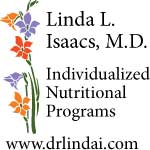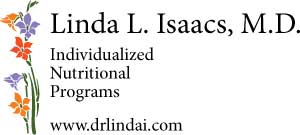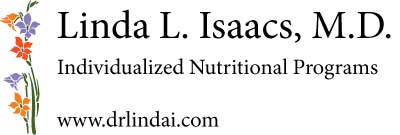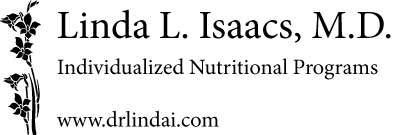Nicholas Gonzalez: Quack or Pioneer?
An open response to Lancet Oncology
Linda L. Isaacs, M.D.
Submitted to Lancet Oncology 20 Oct 2020 2PM Central US Time; rejected 21 Oct 2020 3AM Central US Time
The Lancet Oncology article by Sissung et al entitled “How Do You Take Your Coffee?” discusses coffee enemas, but much of it is an attack on two physicians who used them, Max Gerson and Nicholas Gonzalez. (1) The article states that “physicians who promote the … Gonzalez methods are either unaware so much scientific evidence exists or are intentionally blind to the evidence.” However, much was omitted in Sissung et al’s review. As the long-time colleague of the late Nicholas Gonzalez, and co-author of articles and books with him, here I complete the information provided, in order to explain why I continue to offer the treatment to patients.
To summarize the method and its history: in the early 1980s, Gonzalez began an investigation into the work of William Donald Kelley, an orthodontist who offered an enzyme-based nutritional method for treating cancer and other illnesses. The protocol involves high-dose oral pancreatic enzymes, an organic diet, and coffee enemas. While Kelley devised his methods based on empirical results in himself and others, support for the use of pancreatic enzymes in treating cancer goes back more than a century. John Beard, a British embryologist, speculated that cancer derived from trophoblast cells. (2) He observed that the fetal pancreas began making enzymes around the time that the trophoblast became less invasive, and concluded that pancreatic enzymes were the signal that modified the trophoblast cells and might also control cancer. More recent researchers have noted the similarity on a molecular level of the actions of trophoblast cells and cancer cells, and receptors for proteases on the surfaces of both types of cells have been found. (3, 4, 5)
Gonzalez reviewed a large number of Kelley’s files and found remarkable case reports, eventually published under the title One Man Alone. (6) Unfortunately, Gonzalez was unable to get research funding to investigate Kelley’s work in an academic environment. Therefore, he entered private practice, utilizing the methods as he had learned from Kelley, with the goal of collecting more case reports.
He continued the use of coffee enemas because he was trying to replicate Kelley’s results, and that is how the patients in Kelley’s files had been treated. But coffee enemas had been around long before Kelley or Gerson started using them; in the 1800s and early 1900s, physicians recommended them for treatment of poisonings and shock, and in postoperative care. (7-11) None of these articles refer to “autointoxication.” Sissung et al, in their dismissal of the value of coffee enemas, state that “autointoxication was discarded by the medical community almost 100 years ago when advances in science did not support this hypothesis.” But the article referenced to support this discusses colectomies for mental illness, not coffee enemas or even colonics. (12) The medical world was using coffee enemas before the fad of “autointoxication” came along, and discarded them based on expert opinion, not evidence. (13, 14)
Practically, my patients almost without exception approach the enemas with suspicion, but come to love them and report substantial improvement in symptoms such as fatigue, malaise, myalgias, and joint pain. A 2014 article documents that they stimulate the flow of bile. (15) I agree with Sissung et al that some of the theories about their mechanism of action cannot be correct, but debunking those theories does not prove that coffee enemas are unhelpful.
After six years in practice, in 1993 Gonzalez presented 25 cases at the National Cancer Institute. (16) He and I then began a pilot study with pancreatic cancer, the results of which were published in 1999. (17) At the time of publication, of 11 patients entered, nine (81%) were alive at one year, five (45%) at two years, and four at three years or more.
We then embarked upon a controlled clinical trial comparing our results to chemotherapy. The academics involved published their version of the results in 2010. (18) Sissung et al state that the results “suggest the unethical nature of treating progressing cancers with nutrition and detoxification alone.” In the same paper, Sissung et al criticize articles about the Gerson protocol for failing to document compliance with the therapy regimen. Why didn’t they levy the same criticism about the negative article on the Gonzalez treatment?
In their publication, the academics involved failed to mention that the vast majority of the patients entered into the nutritional arm of the study did not adhere to the protocol. They did not discuss adherence at all. Gonzalez and I estimated that 30 of the 39 patients entered into our arm of the study followed it not at all, briefly, or incompletely. This was acknowledged to be a problem in a January 2005 letter by one of the study supervisors from the National Center for Complementary and Alternative Medicine. (19)
Patients failed to adhere for many reasons, among them the opposition of other doctors. But in some cases, patients were admitted by the academics involved (who had absolute power over this) who were unable to eat three meals a day (an entrance criterion). As an example, during my intake examination, I asked an obviously cachectic patient how his food intake was. He looked nervously at me, and his wife jumped in to say “Tell her you’re eating three meals a day!” I called the academics to report this; they insisted he was in the trial, and that I must proceed. Six days later, he was hospitalized, dehydrated because he could not keep down water. He never swallowed a single supplement. Yet he was counted in the final tally as a treatment failure.
Gonzalez wrote a lengthy book which discusses many other problems with the trial. (20) My 2015 article “Research Battles: Survival Tips from a Veteran” focuses on the problems with study design for the clinical trial that made the conclusions invalid. (21) It is freely available on PubMed Central.
After the bitter disappointment of the clinical trial, Gonzalez and I focused on publishing case reports. (22) An article by Gonzalez about the history of pancreatic enzyme treatment of cancer included two more, and I have published another two since his death. (23, 24) To understand why Gonzalez and I continued to offer this therapy, and why I continue now, I suggest reading the case report articles, all of which are freely available. Those case reports include a patient of mine with adenocarcinoma of the exocrine pancreas who is now nearly 20 years out from diagnosis. The biopsy slides were reviewed at the diagnosing hospital and again at the Mayo Clinic. She has never had surgery, chemotherapy or radiation.
I always encourage patients to consult with an oncologist, and I refuse to treat patients who could be cured by orthodox therapy. But I believe that Gonzalez and I have had too many patients do well for it to be ethical of me to quit. I will continue to collect case reports, in the hopes that some day, another, properly conducted, clinical trial will be possible.
References
1. Sissung TM, Huang PA, Strope JD, Figg WD. How do you take your coffee? Lancet Oncol. 2019;20(7):913-914. [Full text]
2. Beard J. The Enzyme Treatment of Cancer and Its Scientific Basis. London: Chatto and Windus; 1911. [Full text]
3. Ferretti C, Bruni L, Dangles-Marie V, Pecking AP, Bellet D. Molecular circuits shared by placental and cancer cells, and their implications in the proliferative, invasive and migratory capacities of trophoblasts. Hum Reprod Update. 2007;13(2):121-141. [Abstract]
4. Gieseler F, Ungefroren H, Settmacher U, Hollenberg MD, Kaufmann R. Proteinase-activated receptors (PARs) – focus on receptor-receptor-interactions and their physiological and pathophysiological impact. Cell Commun Signal. 2013;11:86. {Full text]
5. Even-Ram SC, Grisaru-Granovsky S, Pruss D, et al. The pattern of expression of protease-activated receptors (PARs) during early trophoblast development. J Pathol. 2003;200(1):47-52. [Abstract]
6. Gonzalez NJ. One Man Alone; An Investigation of Nutrition, Cancer, and William Donald Kelley. New York, NY: New Spring Press; 2010. [Amazon]
7. Roux M. Case of poisoning by atropine. Med Times Gazette. 1861:154-155. [Full text]
8. Cachot MA. Case of Poisoning by Aconite; Enema of Coffee in the Treatment. Pac Med Surg J. 1866;9:239-240. [Full text]
9. Mississippi Valley Medical Association Society Proceedings. West Med Rev. 1896;1(7):189-194.[Full text]
10. Allison CC. Operative Technique in Appendicitis, with Cases. West Med Rev. 1896;1(6):152-154. [Full text]
11. Stajano C. The concentrated coffee enema in the therapeutics of shock. Uruguayan Med Surg Special Arch. 1941;29(3):1-27.
12. Morris M, Price T, Cowan SW, Yeo CJ, Phillips B. William Arbuthnot Lane (1856-1943): Surgical Innovator and His Theory of Autointoxication. Am Surg. 2017;83(1):1-2. {Abstract]
13. Bested AC, Logan AC, Selhub EM. Intestinal microbiota, probiotics and mental health: from Metchnikoff to modern advances: Part I - autointoxication revisited. Gut Pathog. 2013;5(1):5-5. [Full text]
14. Richards DG, McMillin DL, Mein EA, Nelson CD. Colonic irrigations: a review of the historical controversy and the potential for adverse effects. J Altern Complement Med. 2006;12(4):389-393. [Full text]
15. Kim ES, Chun HJ, Keum B, et al. Coffee enema for preparation for small bowel video capsule endoscopy: a pilot study. Clin Nutr Res. 2014;3(2):134-141. [Full text]
16. Gonzalez NJ. Exemplified Case: Best Case Series. In: Primack A, Spencer J, eds. The Collection and Evaluation of Clinical Research Data Relevant to Alternative Medicine and Cancer: a workshop sponsored by the Office of Alternative Medicine. Bethesda, MD: National Institutes of Health; 1996:12-13.
17. Gonzalez NJ, Isaacs LL. Evaluation of pancreatic proteolytic enzyme treatment of adenocarcinoma of the pancreas, with nutrition and detoxification support. Nutr Cancer. 1999;33(2):117-124. [Abstract]
18. Chabot JA, Tsai WY, Fine RL, et al. Pancreatic proteolytic enzyme therapy compared with gemcitabine-based chemotherapy for the treatment of pancreatic cancer. J Clin Oncol. 2010;28(12):2058-2063. [Full text]
19. Engel LW. 2005. Available at: https://www.drlindai.com/engel.pdf
20. Gonzalez NJ. What Went Wrong: The Truth Behind the Clinical Trial of the Enzyme Treatment of Cancer. New York, NY: New Spring Press; 2012. [Amazon]
21. Isaacs LL. Research Battles: Survival Tips From a Veteran. Integr Med (Encinitas). 2015;14(5):30-32. [Full text]
22. Gonzalez NJ, Isaacs LL. The Gonzalez therapy and cancer: a collection of case reports. Altern Ther Health Med. 2007;13(1):46-55. [Full text]
23. Gonzalez NJ. The History of the Enzyme Treatment of Cancer. Altern Ther Health Med. 2014;20(S2):30-44. [Full text]
24. Isaacs LL. An enzyme-based nutritional protocol in metastatic cancer: case reports of a patient with colon cancer and a patient with lung cancer. Altern Ther Health Med. 2019;25(4):16-19. [Full text]



